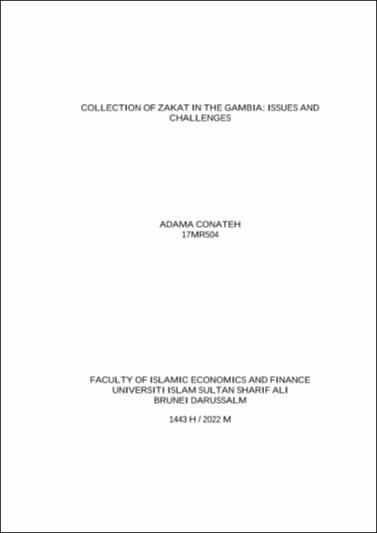Collection of Zakat in The Gambia: Issues and Challenges

Date
2022Author
Adama Conateh
Abstract
The Gambia is a small country in West Africa with the current population of about
2,173,071 of which Islam is the majority religion of the country with around 95% of the
population as Muslims and is a characteristic by its coexistence with other religions.
The objectives of the study are to examine the status of zakat management, factors
affecting the collection of zakat, and implications to improve the zakat management in
Gambia. Zakat is one of the most significant aspects in Islamic economics as it is one
of fundamental pillars of Islam. It has a direct influence on the socio-economic
circumstances of the poor and needy in Muslim communities paying zakat is extremely
significant and is a responsibility and duty that has to be carried out by eligible and
affluent Muslims. The study employs a cross section survey design which is concerned
with how variables are associated and methodology of the study was a quantitative
approach with a survey questionnaire. The total population of the study is 150
businessmen who are eligible to pay zakat. According to the outcome results on the
status of zakat on issues and challenges, the findings revealed the significance and the
relevance of conducting such a study on zakat payers among the business people in the
Gambia. The study recommends that policymakers of the country and other institutes
of zakat should perform a more effective and stronger role in enlightening and educating
the public concerning paying zakat and management issues, which will add further to
existing literature on zakat compliance and contribution to knowledge.

